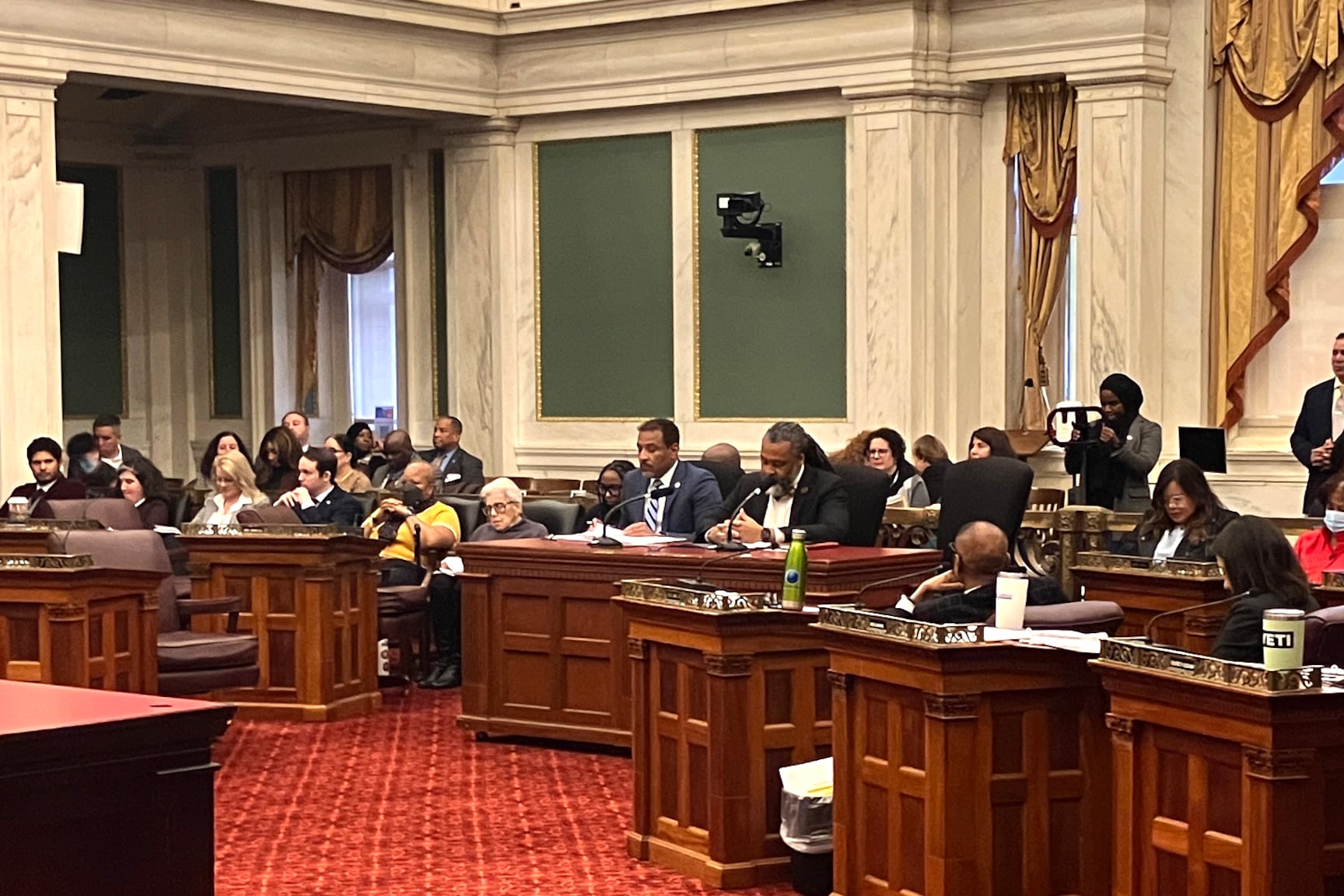Sign up for Chalkbeat Philadelphia’s free newsletter to keep up with the city’s public school system.
Philadelphia’s city leaders want to weigh in on the district’s school facilities planning process that will likely result in school closures, co-locations, and building repurposing.
Mayor Cherelle Parker announced Monday that in the next two weeks, her administration will be formally introducing a new “interdisciplinary facility planning committee” to review the school district’s facilities plan and give guidance and feedback.
Representatives from Parker’s office, City Council President Kenyatta Johnson’s office, as well as real estate developers, labor union leaders, and members of the “finance industry” will sit on the committee, in addition to Superintendent Tony Watlington, Parker said.
Parker told City Council members that the committee will give the district advice on how best to rebuild schools and raise funds.
“We are boldly moving ahead with our plans to improve public education in Philadelphia, even as our school district continues to be underfunded,” Parker said.
The district’s school closure and “rightsizing” process has gripped Philadelphia’s education community and surfaced wrenching memories of closure meetings in 2013. Families, teachers, and advocates have been sharing their concerns and pleas for improved facilities at public meetings across the city this month and last month.
Oz Hill, the district’s interim deputy superintendent of operations, said the district is facing a growing building maintenance backlog: His office receives some 650 new work orders for building issues every week, he said.
Watlington told Chalkbeat last week that he recognizes how painful school closures can be and the persistent negative impact closures can have on students’ academic performance and mental health. He said it’s his intention to minimize the harm to students even as they consider closing and combining schools.
School board members also teased a new initiative at the city council meeting they’re calling Project RISE (reimagining school excellence) to revise the district’s performance framework for charter schools.
School officials have been talking about reimagining the charter school authorizing process for nearly a decade. Pennsylvania’s charter school law has remained mostly unchanged since 1997. Some charter leaders and representatives have come before the school board arguing that the current process is confusing, burdensome, inefficient, and rife with systemic inequities. Pennsylvania’s Auditor General meanwhile has concluded that Philadelphia’s process complies with all relevant state laws.
The board has not approved a new charter school since the city regained local control of its schools from the state in 2018, but it has renewed several existing schools’ charters.
“The board knows that strong accountability systems must evolve over time,” Board member Whitney Jones (who used to work for the KIPP charter school network) told City Council members. Project RISE, he said, will “determine how the charter school performance framework should evolve to best support the needs of our students.”
The three-phase process will involve gathering feedback, putting out a request for proposals for an outside group to review the existing charter school performance framework, and eventually developing updated administrative procedures.
Board members said they’re in the process of considering four applications for new charter schools. Hearings on these applications will be held Dec. 19 and sometime in January.
Carly Sitrin is the bureau chief for Chalkbeat Philadelphia. Contact Carly at csitrin@chalkbeat.org.






